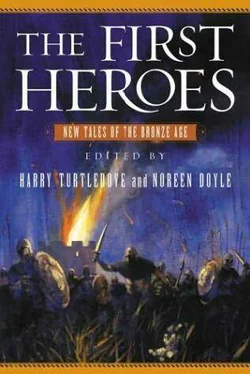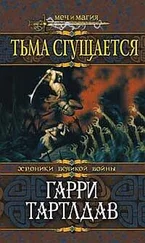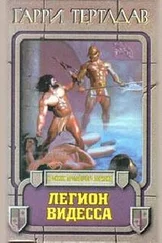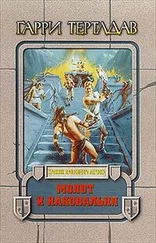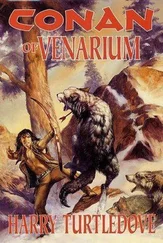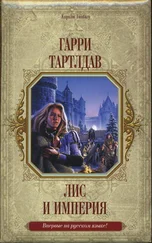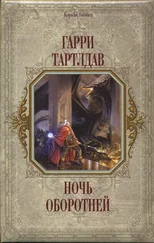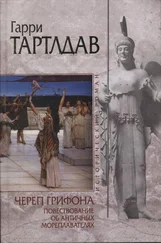Гарри Тертлдав - The First Heroes
Здесь есть возможность читать онлайн «Гарри Тертлдав - The First Heroes» весь текст электронной книги совершенно бесплатно (целиком полную версию без сокращений). В некоторых случаях можно слушать аудио, скачать через торрент в формате fb2 и присутствует краткое содержание. Жанр: Фантастика и фэнтези, на английском языке. Описание произведения, (предисловие) а так же отзывы посетителей доступны на портале библиотеки ЛибКат.
- Название:The First Heroes
- Автор:
- Жанр:
- Год:неизвестен
- ISBN:нет данных
- Рейтинг книги:3 / 5. Голосов: 1
-
Избранное:Добавить в избранное
- Отзывы:
-
Ваша оценка:
- 60
- 1
- 2
- 3
- 4
- 5
The First Heroes: краткое содержание, описание и аннотация
Предлагаем к чтению аннотацию, описание, краткое содержание или предисловие (зависит от того, что написал сам автор книги «The First Heroes»). Если вы не нашли необходимую информацию о книге — напишите в комментариях, мы постараемся отыскать её.
The First Heroes — читать онлайн бесплатно полную книгу (весь текст) целиком
Ниже представлен текст книги, разбитый по страницам. Система сохранения места последней прочитанной страницы, позволяет с удобством читать онлайн бесплатно книгу «The First Heroes», без необходимости каждый раз заново искать на чём Вы остановились. Поставьте закладку, и сможете в любой момент перейти на страницу, на которой закончили чтение.
Интервал:
Закладка:
He'd married young at duty's harsh direction
But when his first wife died, without delay
He indulged his paedic predilection
Learned from a mentor held in fond affection.
That "valet" was a pretty teen, well-bred,
Who dressed him, yes, but also warmed his bed.
No more though—no more sleeping in his arms;
No more watching youth turn, with the days,
Into a man; no more his boyish charms
Nor his hard body that led thoughts astray;
No more teaching a young protege—
For Kallimorphos, when he could contrive,
Abandoned Aeacus for his twin wives.
These childhood friends together had planned his break
From royal duties. The king, not knowing this,
In private cursed how Chance made him forsake
His chance for happiness—exchanged for his
Two ants. At least his had good statuses:
Two leaders, both negotiators, who'd
Grown fond of this old man who wasn't lewd.
The chief of huntresses, blonde Cyrene,
Thought from her dawn encounter that the king
Was as quick-witted as leaders need to be.
Lampito knew, from daily stewarding
His castle, otherwise—while valuing
That all he did he did with good intent,
And, too, his pliancy to management.
When she'd arrived, the management was needed—
Old steward dead of plague, staff disarrayed;
She'd started giving orders; they were heeded.
The king'd ignored his household while it frayed
To dodder round his country—which dismayed
An erstwhile ant who pined for household order:
The queen's house and the state had shared one border.
Between his servicing two wives (while jealous
Of his valet) the king could hardly stay
Upright. At least Lampito was less zealous
Near Cyrene, who balanced out her ways,
But by first light, her co-wife went away
On hunts, which left him in Lampito's hands,
Her energy, her strength, and her demands.
The other men had no advice for him:
The elders, even those remarried, all
Had older wives who cut their juniors' trim;
The youngsters, on the other hand, could call
Upon their energy. These national
Small compromises they were fashioning
Were different for the commons than the king.
Which goes to show that every permutation
Of bodies and of beds both can and will
Be tried—through all the times and nations
A marriage party usually is filled
Per balance of the sexes. It's hard, still,
Because of claims from old religious quarrels,
To keep in mind conditions make our morals.
But such is life, distractible and local—
Like fights that have become their own excuse.
The king retreated into bland but vocal
Pigheadedness, pretending to be obtuse
On issues they debated—from the use
Of palace funds, to plans for his domain:
Not dredge the channel—repair the harbor chain.
"Without good trade, there'll be no revenue,"
She argued, "and defenses cost too much."
What can a wife (and former steward) do
When her good sense has been ignored?
She clutched Her righteousness, and upped demands a notch.
He thought he'd reached the depths of his dismay—
Then Cretan Minos rowed into the bay.
This ruler soi-disant of all the seas
Had wrested Crete from regent brothers, all
So he and his could do just as they please—
Wife's tastes were bestial, son's beastial,
Which worked, for his were architectural.
He'd heard of small Aegina's plague and flight
And thought he'd conquer it without a fight.
Alarms! Excursions! Mobilize our forces!
War ships in harbor! Enemies have come!
King Aeacus was filled with all remorses—
He'd let the stubborn fight distract him from
Those critical defenses. He felt numb,
Especially when the ultimatum came:
Immediate submission or the flame.
Lampito realized, as her husband claimed,
Expensive walls and weapons were really needed;
The thought she'd weakened the nest left her shamed.
As men's and myrmidons' demands exceeded
Her rationed swords and shields, her hopes receded,
But with her co-wife gone—off hunting things—
'Twas left to her alone to aide the king.
Each side's commander soon received reports:
Aegina's rocky shores were all secure,
With no place for a landing but the port—
But there, alas, defensive works were poor.
The myrmidons were news, unknown before,
But Minos didn't do a double-take.
"More women? Ha! They're nothing." Big mistake.
Formalities: Aegina spurned surrender.
Thus answered, Cretans landed on the quay
To find that they were fighting either gender:
The men were trained, but women meaner—they
Threw all their strength and numbers in the fray,
All weapons raised against invading males:
Swords, brickbats, pointy sticks, teeth, fingernails.
At first they held their ground. Their viciousness
Unnerved the Cretans—myrmidons fought hard,
Ignoring danger, to protect their nest,
And men, to save their wives. Thus caught off-guard,
They were confined and couldn't gain a yard,
But with good armor and their better training,
The Cretans forced a breech, and soon were gaining.
They battled house to house, result too clear,
Till Cyrene at last came from the hills
With all her huntresses, each armed with spears—
All former soldier ants fresh from the kill.
Resistance stiffened under her—but still,
The Cretan front kept rising up, not falling:
The death rate of defenders was appalling.
The myrmidonic tactics were the cause:
Their sense of strategy was mass attack
In crowded interference, without a pause
To make sure that reserves were at their back.
Retreat on purpose? The thought took them aback.
King Aeacus soon realized that while he
Was not obeyed, they'd follow Cyrene.
But she was in the deepest thick of things
And wouldn't back out either. It was hot,
But shielded by Lampito, our brave king
Worked through the battle din to where she fought—
Which made the ants who saw him quite distraught—
And once he caught her and her sole attention,
He then explained his tactical intention:
That first, Aeginetans in front fall back
To draw the Cretans out, then sides sweep in
Behind their rear, now open to attack.
The plan was good, but Cyrene didn't grin—
She saw a flaw, much to the king's chagrin:
"What keeps our enemy, while we retreat,
From pressing on to finish our defeat?"
Lampito, with her managerial skills,
Knew what: unused material for planned
New houses could make barricades to fill
The streets, behind which fighters could safely stand.
The work was quickly done at her command,
And Cyrene then plunged where battle pressed
To give the word: fall back, sweep round, invest.
They fell back in good order; with fighters freed,
As quick as knives her counter then attacked
The Cretans. Minos missed what happened—he'd
Blinked—suddenly, instead of helpless city sacked,
He'd lost his landing party. His wrist smacked,
He soothed his ego with an easy crime
And went to bully Athens one more time.
They held a sacrifice in celebration—
This after clean-up—during which they mourned
And newly dead were given their libation.
That done, while some remarriage plans were formed,
They partied hard—though Aeacus was scorned
By Kallimorphos. Thrown into a funk,
He was consoled by getting rather drunk.
The skills of both his wives were sorely tested,
Читать дальшеИнтервал:
Закладка:
Похожие книги на «The First Heroes»
Представляем Вашему вниманию похожие книги на «The First Heroes» списком для выбора. Мы отобрали схожую по названию и смыслу литературу в надежде предоставить читателям больше вариантов отыскать новые, интересные, ещё непрочитанные произведения.
Обсуждение, отзывы о книге «The First Heroes» и просто собственные мнения читателей. Оставьте ваши комментарии, напишите, что Вы думаете о произведении, его смысле или главных героях. Укажите что конкретно понравилось, а что нет, и почему Вы так считаете.
